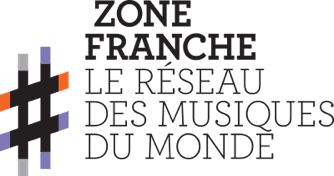As their name suggests, “diggers” are like miners. Plunging deep into the bowels of music, they unearth nuggets to share with the world. We meet some of those who pan for gold in the music of yesteryear for a better understanding of how they work and to get to the bottom of most recent developments.
For a long time “digging” was the preserve of collectors who tried to preserve musical heritage buried deep on antediluvian disks of black wax. At the dawn of club culture, “digger” became a sort of badge of honour, self-proclaimed by DJs who knew how to exhume and re-cut gems of sound for the dancefloor. But the rights of artists and producers were not always respected; passion for a particular title sometimes took precedence over the rights of their creators and producers. Today, with the world just a click away, “diggers” have become like archaeologists 3.0, needing to combine their love of a groove with expertise in ethnomusicology and music law.
Ear and flair
Deni Shain, whose name has been attached to the compilations Space Echo and Bitori (Cape Verde), Pop Makossa (Cameroon) and, since 2018, to his label Atangana Records, has been digging for a decade. “I started in Portugal,” he says. “I had a residency at Musicbox, a club in Lisbon. When I came out at 6 am, I’d rush over to the Feira da Ladra, the local flea market, where Cape Verdeans and Haitians were selling their family 45s” he remembers. “That’s how you build your collection, your sound fingerprint”. His love of music and meeting new people did the rest. “It’s a real job,” he continues: “You have to have an ear and flair because you need to find good titles then track down the rightsholders. If you want to turn them into a compilation to sell, you have to find the producers as well as the artists”. In the age of the internet, this treasure hunt might seem simpler, but, as far as he’s concerned, nothing beats “being out there on the ground, word of mouth or even luck”.
Sometimes the rightsholders themselves call upon the expertise of these archivists. Based in Pointe-à-Pitre (Guadeloupe) since 2019, Deni Shain is digitising the catalogue of the legendary Guadeloupean producer, singer and songwriter Henri Debs, who died seven years ago. “His son Ryko restored his studio and wanted to archive his father’s recordings (400 albums and 300 45s),” the DJ tells us. “The notion of heritage is important here. Being surrounded by all these records is a real treat for a digger”. As a good activist, this DJ – who now works as a duo alongside DJ After as part of the KalBass Sound-System – is planning an audio-visual counterpart, a series of documentaries and audio-books to expand his restoration work, and the next release from his label, Mizik La Ka Dansé, is a compilation of biguine-latin rhythms from the Debs catalogue.
Mizik La Ka Dansé
https://www.youtube.com/watch?v=ZS2wokhVuNQ
The Indiana Jones of music
But how many titles are sitting on a shelf, just waiting for someone to trace back their rights genealogy so they can be “cleared” for use? There’s no shortage of stories on the subject. Page after page could be written about respectful diggers, artists and producers cheated by unscrupulous “fans”, and funny anecdotes, “even if the sums at stake are rarely huge,” as Étienne Tron points out. The DJ, producer and manager of the Secousse label makes it clear that the rights of creators and producers are better taken into account now than in the past: “As the internet globalises even the smallest release in an instant, you can’t do whatever you like any more. Everyone knows about everything now. Labels like Soundway and Honest Jon’s have also helped raise the bar in terms of content and respecting people’s rights, as well as sound quality, which has had a positive impact on the small digger community”.
Neba Solo. Hymne de la CAN 2002
He admits spending several thousand euros on digitising, mastering and lacquering for each release, the three steps to ensuring maximum sound reproduction. “It’s an investment that can’t be recovered in six months. Fortunately, our releases are sold over much longer periods,” he adds, mentioning two of his bestsellers that are continuing to sell: the reissue of the maxi Propriété Privée by the Congolese Sammy Massamba and the anthem written by the Malian balafonist Neba Solo for the 2002 African Cup of Nations.
At the beginning of the summer, Étienne Tron released Nduzangou, a track written in 2015 by the Comorian singer Zaza. “She’s an artist who provides the soundtrack to weddings alongside Zile, a musician and producer. I discovered her through her videos, some of which have had more than a million and a half views. When I wanted to get in touch with her, I tried everywhere in the Comoros, before finding her in Île-de-France through a contact,” he says.
Zaza - Nduzangou
https://www.dailymotion.com/video/x3854ul
Orient Resonance (L’Orient Sonore)
https://www.youtube.com/watch?v=ECiHA0O7ors
From Beirut, Kamal Kassar, a “lawyer, music lover and musician”, as he describes himself, tries to revive “forgotten classics”. While he understands the term “digger”, he thinks his own work – started in 2009 by the AMAR Foundation, dedicated to Archiving and Researching Arab Music – is different, more comprehensive: “This music, which had its heyday between 1850 and 1930, must not disappear. We publish one or two box sets a year (Dist. L’Autre Distribution), accompanied by well-documented booklets, and broadcast several podcasts in Arabic, transcribed into English via our website. We also support young groups interested in this music, which we record and broadcast,” explains the man who is also the curator of the “L’Orient Sonore” [Orient Resonance] exhibition at the MuCEM in Marseille until 4 January. Alongside the sixty or so 78s from the foundation’s collection, audio-visual recordings of a dozen Eastern oral musical traditions threatened with extinction are presented in the form of giant installations.
Some website to adventure yourself in the diggers’ world :
https://atanganarecords.bandcamp.com
https://www.amar-foundation.org
https://www.amar-foundation.org
© photo : Les Mains Noires


